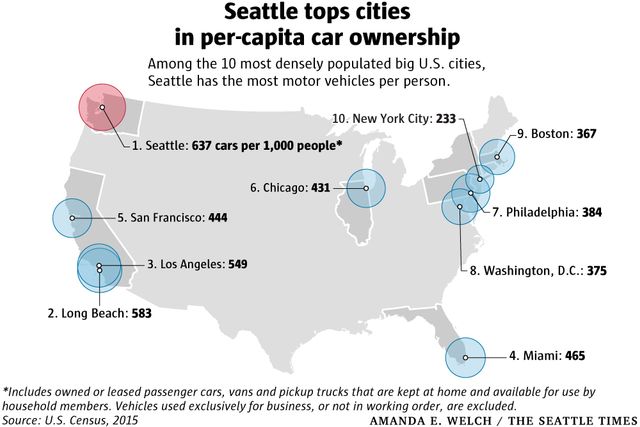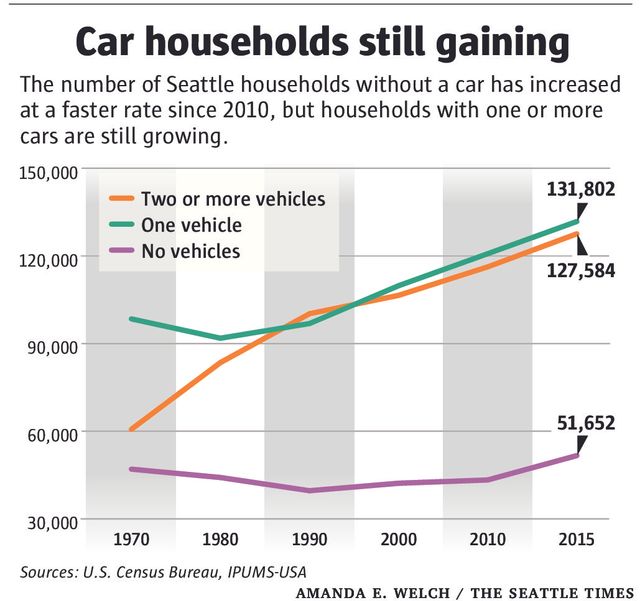 Posted Aug 12, 2017, 7:40 PM
Posted Aug 12, 2017, 7:40 PM
|
 |
Registered User
|
|
Join Date: Aug 2002
Location: Toronto
Posts: 52,200
|
|
|
Booming Seattle Is Adding Cars Just As Fast As People
Booming Seattle Is Adding Cars Just As Fast As People
August 8, 2017
By Gene Balk
Read More: http://www.seattletimes.com/seattle-...ast-as-people/
Quote:
You already know that Seattle is growing like crazy. In fact, with a surge of newcomers, Seattle debuted last year on the list of the 10 most densely populated big cities in the U.S. What you may not know is that the city has added cars at the same rate as people.
- Our car “population” hit 435,000, all crammed into the city’s 84 square miles of land area. That pencils out, in case you’re wondering, to 5,185 cars per square mile. If you ranked major U.S. cities by density of cars instead of people, Seattle would place fifth. Another way to look at it: For every 1,000 city residents, there are 637 cars here. Among the 10 most densely populated big cities, Seattle easily has the most cars per capita — even more than Los Angeles. --- Compared with other big-city dwellers, Seattleites are a car-dependent bunch. We fret a lot here about turning into the next San Francisco, but when it comes to car ownership, we’ve got nothing to worry about. The City by the Bay has 160,000 more people than Seattle, but about 50,000 fewer vehicles.
- It’s not that surprising when you consider Seattle’s history, says Mark Hallenbeck, director of the Washington State Transportation Center at the University of Washington. “Seattle is a relatively new city, so it tends to be built around the car. It was after World War II that most of the major growth took place here,” he said. “A lot of the city is suburban.” Indeed, about half of Seattle is zoned exclusively for single-family homes, according to the city. --- To be fair, there are some signs of change when it comes to car ownership. Back in May, I spoke with Hallenbeck about data showing carless households are now increasing at a faster rate than those with cars, reversing a trend going back many decades. In that sense, at least, Seattle may have passed “peak car.” But even if car-owning households aren’t growing as fast, they’re still growing. And so the raw number of cars in the city continues to climb.
- Requiring developers to include off-street parking in new apartment buildings isn’t a good solution. It adds tremendously to the cost of construction, which in turn raises rents — and higher rents are the last thing Seattle needs. So does continued population growth mean ever more cars in Seattle’s driveways, garages and streets? Hallenbeck thinks at some point that the total number of cars will level off, but we’re not there yet. --- “It’s a function of density and the nature of development that takes place,” he said. “Right now, growth in Seattle is going to bring more cars except in those few areas where owning a car makes no sense.” --- In Seattle — unlike, say, New York — the benefits still outweigh the costs and the hassle for many people. And Seattle is an increasingly affluent city. A lot of folks can afford to own a car for convenience and weekend getaways more than out of true necessity.
.....
|


__________________
ASDFGHJK
|



